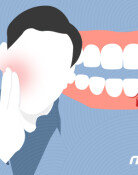Many of the Clauses of the Press Law Pointed Out as Unconstitutional in GNP Public Hearing
Many of the Clauses of the Press Law Pointed Out as Unconstitutional in GNP Public Hearing
Posted June. 28, 2005 06:03,
Judicial scholars pointed out on June 27 at a public hearing for revision of the laws hosted by Shim Jae-cheol, a Grand National Party (GNP) lawmaker and a member of the Culture Committee of the National Assembly, that many of the clauses of the press law and the relief law for victims of media reports are unconstitutional.
GNP chairwoman Park Geun-hye said in the public hearing, We will revise those clauses that run counter to international standards and market logic because those laws have the potential to violate the publics right to know.
Press Law-
Kang Gyeong-geun, a law professor of Soongsil University, emphasized that Clause 2, Article 3 of the press law which stipulates, No one can regulate or interfere with the editing of periodicals or Internet newspapers not as prescribed by this law or other laws, goes against Clause 3, Article 21 of the Constitution that clarifies the function of newspapers. He said, The clause is a carte blanche of sorts that mandates individuals as well as the government to regulate or interfere with the newspaper business when prescribed by the press law or other laws.
He said that Article 18 which allows editing boards should be revised because it is effectively a forced rule and thus unconstitutional. He went on to say that Clauses 1 and 2, Article 11 which state, Newspapers can refuse to run ads in which they find the content clearly violate social ethics, honor, or basic rights of others, should be abolished as the clauses deny publishers the right to edit.
He also argued that Article 17 which demands an assessment of a dominant newspaper according to market share violates the constitutional principle of equality, and that the newspaper development committee (Article 27) and the reports of advertisement revenue and paid circulation (Art 16) are unconstitutional.
Attorney Lee Jae-gyo said, The press law is effectively aimed at offering carrots to pro-government media outlets such as broadcasting companies and Oh My News, while imposing sticks on others, including Dong-A Ilbo, Chosun Ilbo, and JoongAng llbo, adding, The government should scrap the press law and revise the existing Periodicals Act just by adding rules on Internet newspapers.
The Relief Law for Victims of Media Reports-
Moon Jae-wan, law professor of Hankuk University of Foreign Studies, pointed out Articles 4, 6 and 32 as major unconstitutional articles. Article 4 stipulates that media reports shall be fair and objective, while Article 6 demands to install ombudsman in broadcasters and daily newspapers except Internet media outlets, and Article 32 allows a third party who is not in the Press Arbitration Commission or those who are not damaged by media report to make a recommendation of correction in case the media report infringes the national and social benefit and protection of the law.
In particular, professor Moon expressed his concern: The clause on recommendation of correction goes against the constitutional principle that demands the principle of clarity from legislation that limits the freedom of the press, adding, The recommendation of correction exercises legal force by publicizing content, and the media outlets will have a tendency to have their reports conform to the recommendation standards of the Press Arbitration Commission, to avoid their credibility from being compromised.
Seung-Heon Lee ddr@donga.com





![[이진영 칼럼]잘난 韓, 못난 尹, 이상한 張](https://dimg.donga.com/c/138/175/90/1/wps/NEWS/IMAGE/2026/01/20/133198367.1.jpg)

